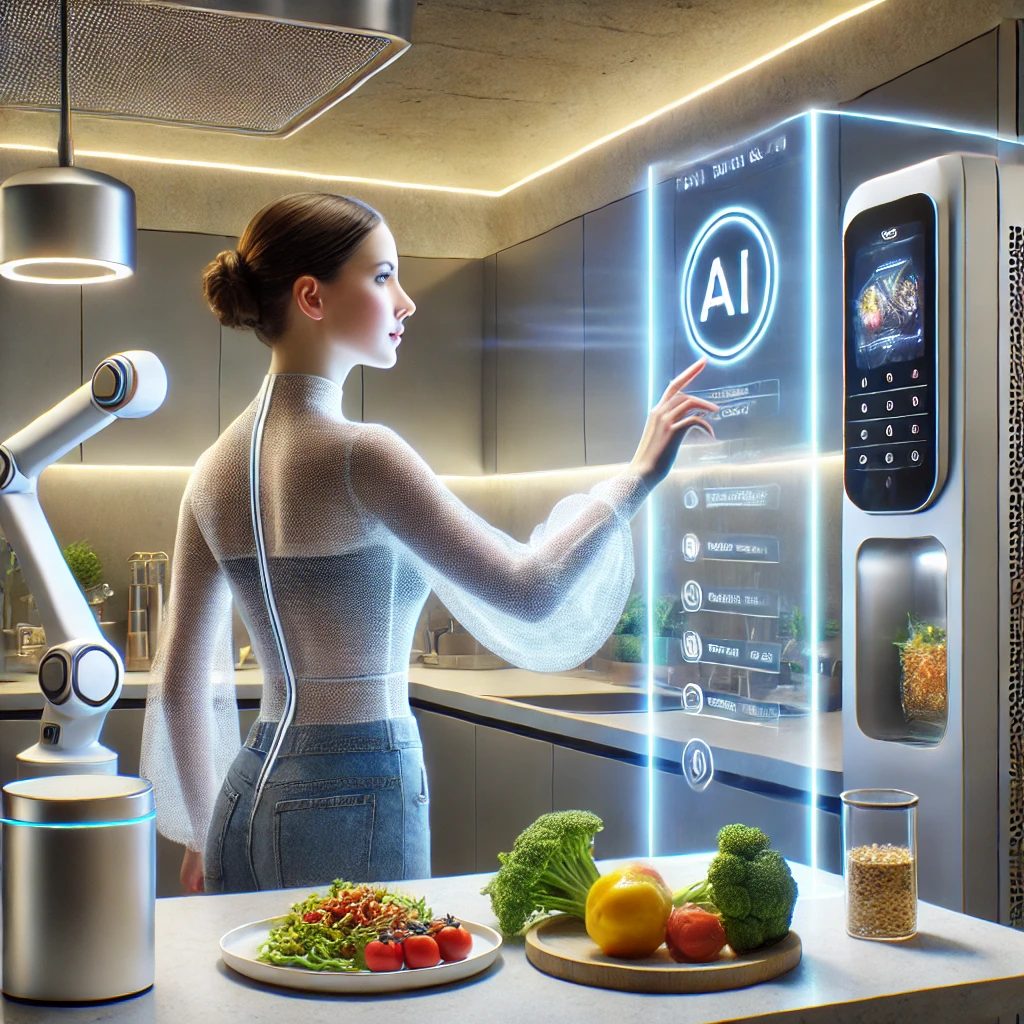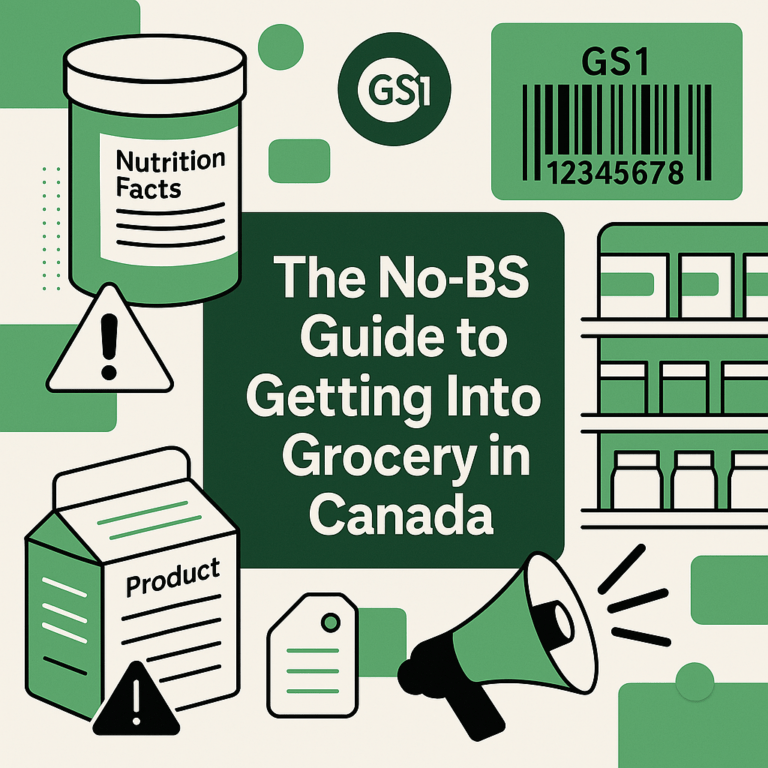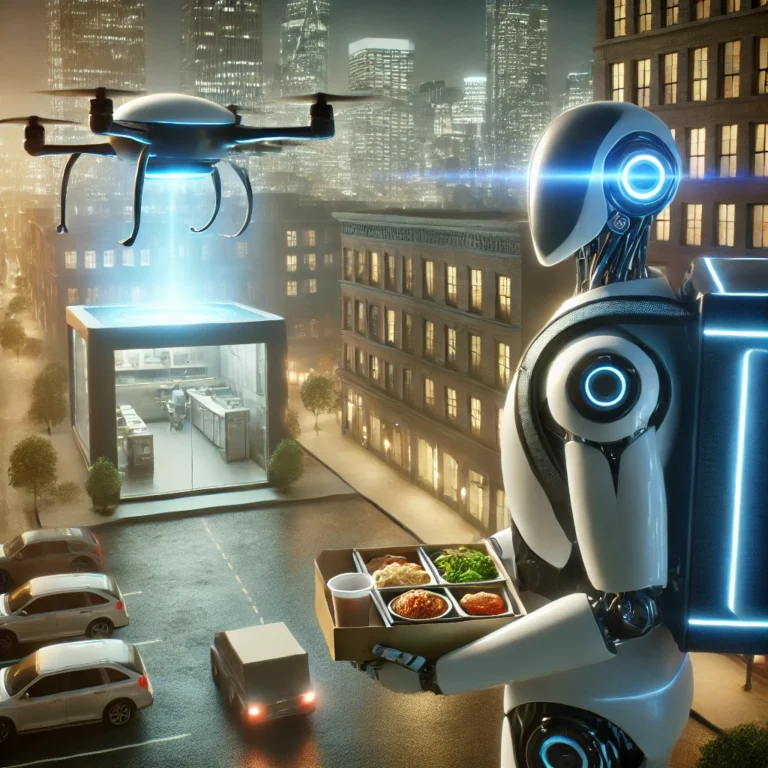AI is revolutionizing almost every industry, and the food sector is no exception. From AI-powered meal planning apps to automated smart kitchens, technology is reshaping how food is produced, consumed, and delivered.
Whether you’re a restaurant owner, a meal prep business, or simply someone looking for healthier, more personalized meal choices, AI is making food smarter, more accessible, and more efficient than ever. Let’s explore the key innovations driving this transformation and the companies leading the charge.
1. AI in Agriculture: Smarter, More Sustainable Farming
AI is optimizing agriculture and food production in ways that reduce waste, improve efficiency, and ensure better quality.
- Iron Ox uses AI-driven robotic farming systems that monitor plant health and optimize water and nutrient use.
- Apeel Sciences uses AI to analyze food spoilage and extend the shelf life of fresh produce with plant-based coatings.
- Taranis provides AI-powered insights to help farmers detect early signs of disease and pests, ensuring higher yields and less waste.
By leveraging machine learning and automation, these companies are redefining how food is grown and harvested, reducing environmental impact while increasing efficiency.
2. AI-Powered Meal Planning & Personalized Nutrition
Personalized nutrition is one of the fastest-growing applications of AI in food. People are increasingly looking for diets tailored to their DNA, microbiome, and lifestyle, and AI-driven platforms are making this level of customization possible.
- ZOE offers AI-driven insights based on gut microbiome analysis, glucose responses, and dietary tracking to create personalized meal recommendations.
- Noom uses AI and behavioral psychology to help users make smarter eating decisions, tailoring advice based on habits and goals.
- Suggestic provides an AI-powered nutrition coaching platform that integrates with DNA and blood test data for hyper-personalized diet plans.
These AI-driven tools are helping people optimize their health and wellness, eliminating guesswork and making nutrition science more accessible.
3. The Rise of AI-Powered Smart Kitchens
AI is transforming home and commercial kitchens with automated cooking technology and smart food preparation.
- Miso Robotics developed Flippy, an AI-powered robotic chef that flips burgers, fries food, and handles repetitive kitchen tasks.
- Samsung’s AI Smart Fridges use AI to track food inventory, suggest recipes, and reduce waste.
- CHEF-iQ integrates AI with smart cooking appliances to provide guided recipes and precise cooking instructions.
These solutions are helping both home cooks and foodservice operators improve efficiency, reduce food waste, and maintain consistency in food preparation.
4. AI in Smart Vending & Automated Food Delivery
AI is also revolutionizing food retail and delivery, making fresh, high-quality meals more accessible through automation.
- Caper AI, now owned by Instacart, has developed AI-powered smart shopping carts that automatically scan and charge customers for groceries.
- Just Walk Out by Amazon uses AI-powered checkout-free shopping, allowing customers to grab food and leave without waiting in line.
- Bite Ninja uses AI-powered virtual cashiers, allowing restaurants to take drive-thru orders remotely via AI-assisted staff.
AI-driven smart vending machines and autonomous meal solutions are changing the way people access food on the go, eliminating the need for traditional cashiers and making fresh, convenient meals more available in high-traffic areas.
5. The Role of AI in Food Safety & Compliance
Ensuring food safety and regulatory compliance is a complex, labor-intensive process. AI is helping businesses streamline food labeling, detect contaminants, and maintain compliance with health regulations.
- Clear Labs uses AI-driven DNA sequencing to detect foodborne pathogens and contamination in real-time.
- SafeTraces applies AI to trace food origins, ensuring food supply chain transparency and reducing fraud.
- FoodLogiQ provides AI-powered food safety and quality management systems to help companies comply with FDA and CFIA regulations.
With AI automating much of the testing and compliance process, businesses can improve food safety while reducing costs and inefficiencies.
Where Does UpMeals Fit In?
UpMeals OS uses AI to streamline meal production, automate food costing, and simplify compliance for food businesses. From real-time inventory tracking to CFIA-compliant labeling, the platform helps operators cut down on manual work and reduce errors. It provides data-driven insights and automation tools that improve efficiency, reduce waste, and simplify operations at scale.
Final Thoughts
AI is making food production and management more precise, scalable, and adaptable. As the industry shifts toward data-backed decision-making, automation is becoming essential for staying competitive. UpMeals OS is built to handle the complexities of food operations, making it easier to manage compliance, inventory, and meal production without the manual headaches.





